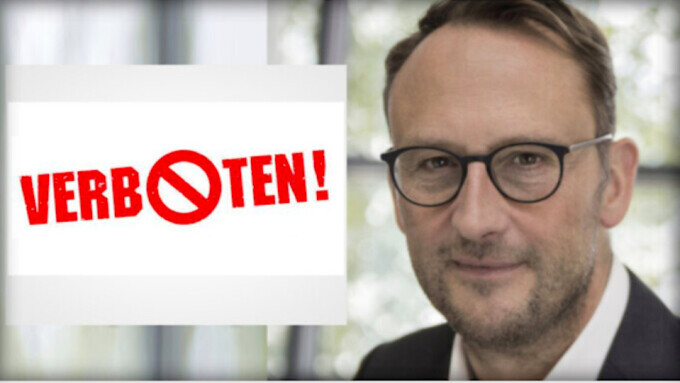BERLIN — German digital rights group Netzpolitik.org has published an editorial warning against the current onslaught by self-proclaimed “youth protectors” attempting to use the country’s court system to force a government ban on adult tube sites.
Earlier this month, the one-man War on Porn being conducted in Germany by Tobias Schmid — an obscure, conservative local bureaucrat from the North Rhine-Westphalia region — resulted in the first national ban order on three adult sites based in Cyprus: YouPorn, Pornhub and MyDirtyHobby.
The same anti-porn campaign has also targeted xHamster, one of Germany’s leading tube sites, which has offices in Cyprus.
Schmid has stated that his goal is to “shut down” all major tube sites over alleged age-verification infractions.
The opinion piece published Tuesday by Netzpolitik was written Sebastian Meineck, a seasoned journalist with deep knowledge of the digital rights situation in the Central European nation.
“For a long time, porn sites based abroad had little to fear from the German ‘protection of minors’ regulations,” Meineck wrote. “Now ‘youth protection’ activists are giving the websites’ operators a seemingly simple choice: either they implement the German youth protection regulations voluntarily — meaning, no porn for minors — or countermeasures, including network blocks, are threatened.”
“In this case,” he adds, “a porn site could no longer be accessed in Germany without workarounds.”
Meineck points out Schmid’s central role, from his perch in the State Media Authority of North Rhine-Westphalia, as the ringleader of the campaign to deplatform adult sites that do not comply.
Schmid’s campaign almost exactly mirrors a similar campaign currently underway in France, also spearheaded by self-described “children’s advocates.”
Germany’s top ISPs Vodafone, Telefonica, 1 & 1 and Pÿur confirmed to Netzpolitik that “consultations” are currently taking place regarding blocking the tube sites.
Telekom declined to comment on ongoing proceedings, but a spokesperson said the company is "critical” regarding blocking.
A Carefully Plotted Strategy of 'Small Steps'
Meineck notes that there is precedent for Schmid’s strategy: in 2007, according to the article, YouPorn received a network ban because a competitor complained to ISP Arcor about a supposed “lack of protection of minors.” Arcor challenged the ban in court and it was reportedly lifted in 2008.
But the article also points out that “blocking the network is considered a harsh tool” with unpredictable political consequences for free speech and digital rights. A prominent politician called it a “Pandora's Box,” in a country that still has not fully come to terms with its descent into totalitarian rule in the mid 20th century.
Blocks “generally violate the principle of network neutrality,” Meineck wrote, “and in authoritarian states they are a tool for censorship. When then-CDU Family Minister Ursula von der Leyen wanted to introduce network blocks in Germany in 2009, critics gave her the nickname ‘Zensursula’ [Censor-Ursula] and there were violent waves of protests.”
Analyzing how a minor bureaucrat from North Rhine-Westphalia managed to ram through a seemingly imminent blanket block of Germany's most-visited porn sites, Meineck points out that the present situation is the result of “many small administrative steps” in the background.
“Only when viewed as a whole does the net political impact emerge,” he writes.
Main Image: Tobias Schmid (Source: LMA)








